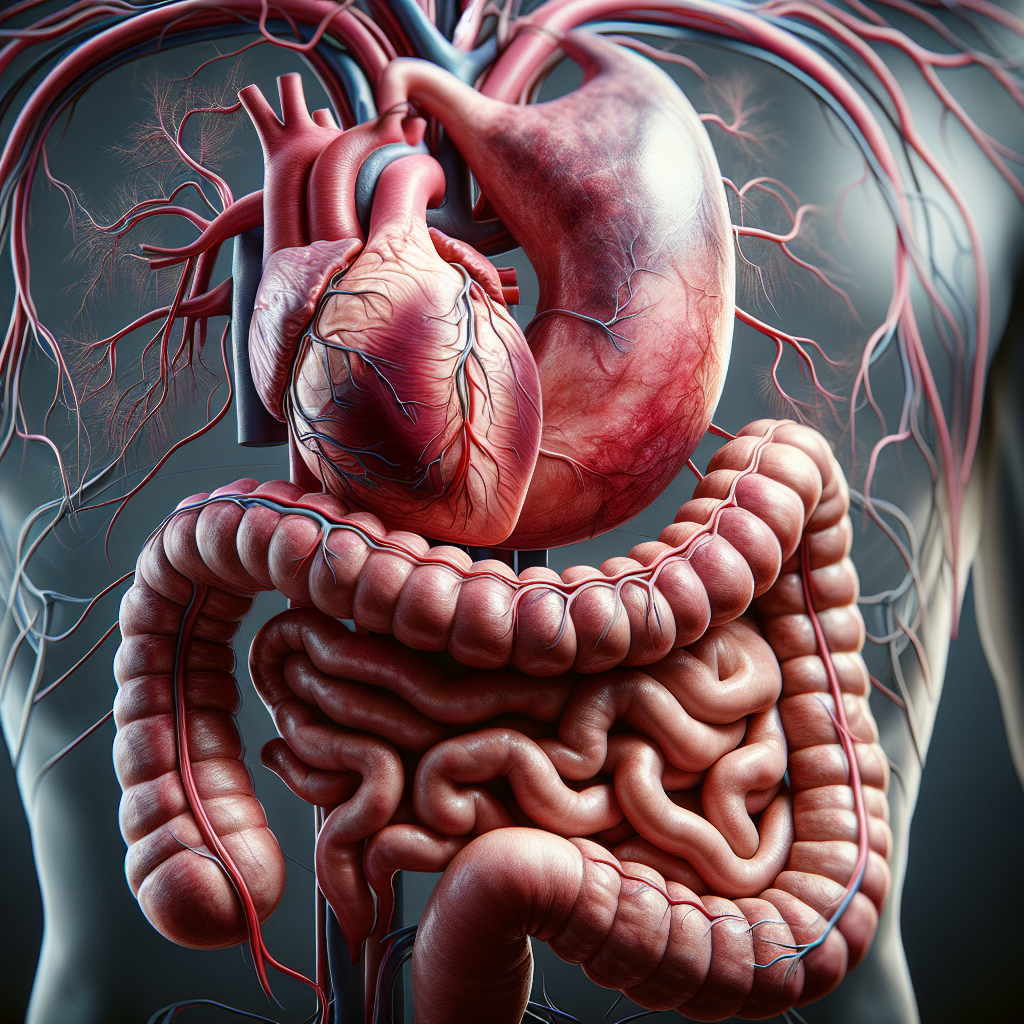Cardiometabolic health refers to a spectrum of conditions that include cardiovascular diseases and metabolic disorders such as diabetes and obesity. In recent years, these conditions have become increasingly prevalent, affecting millions of people globally. Understanding cardiometabolic health is crucial for taking proactive steps to improve your overall well-being.
Cardiometabolic health is influenced by several factors including genetics, lifestyle choices, and environmental exposures. Poor diet, lack of exercise, and chronic stress can significantly increase the risk of cardiometabolic conditions. Conversely, making positive lifestyle changes can greatly enhance your health and reduce these risks.
At New England Weight Loss, we understand that achieving optimum health can be challenging. Our doctor-prescribed medications, such as semaglutide and tirzepatide, are designed to help you reduce unwanted fat without the need for extreme dieting, exercising, or surgery. Get started today on your weight loss journey and take the first step towards a healthier you by visiting New England Weight Loss.
Importance of a Balanced Diet
A balanced diet is pivotal in maintaining and enhancing cardiometabolic health. Consuming a variety of nutrients in appropriate proportions helps regulate body weight, improve blood sugar levels, and reduce the risk of heart disease. A diet rich in fruits, vegetables, whole grains, lean proteins, and healthy fats provides the essential vitamins and minerals that your body needs to function optimally.
One of the key benefits of a balanced diet is its ability to manage blood pressure and cholesterol levels. High-fiber foods, such as oats and legumes, can help lower bad cholesterol, while foods rich in potassium, like bananas and sweet potatoes, can help regulate blood pressure. Additionally, consuming omega-3 fatty acids found in fish, nuts, and seeds can further support heart health.
It’s also important to limit the intake of processed foods, sugary beverages, and trans fats, which can contribute to inflammation and insulin resistance, both of which are risk factors for cardiometabolic diseases. Instead, focus on whole, nutrient-dense foods that provide sustained energy and promote overall well-being.
Incorporating a balanced diet into your daily routine may seem daunting, but small, incremental changes can make a significant difference. Start by gradually increasing your intake of fresh produce and whole grains while reducing your consumption of processed and sugary foods. Over time, these healthier choices will become second nature, contributing to improved cardiometabolic health.
Exercise and Physical Activity

Regular exercise and physical activity are crucial components of cardiometabolic health improvement. Engaging in consistent physical activity helps regulate body weight, improve insulin sensitivity, and reduce the risk of cardiovascular diseases. Exercise also enhances overall metabolic function, ensuring that your body utilizes nutrients efficiently.
For optimal cardiometabolic health, it is recommended to incorporate a mix of aerobic exercises, such as walking, running, or cycling, along with strength training exercises, like weight lifting or resistance band workouts. Aerobic exercises help improve cardiovascular endurance and promote fat loss, while strength training builds muscle mass, which in turn boosts metabolism.
Engaging in at least 150 minutes of moderate-intensity aerobic activity or 75 minutes of vigorous-intensity aerobic activity per week, coupled with muscle-strengthening activities on two or more days a week, can significantly improve cardiometabolic health. This can be broken down into manageable sessions, making it easier to fit into a busy schedule.
Additionally, incorporating physical activity into your daily routine can be as simple as taking the stairs instead of the elevator, walking during lunch breaks, or engaging in recreational sports. These small changes can cumulatively have a profound impact on your health.
Beyond the physical benefits, exercise also offers mental health benefits by reducing stress, improving mood, and promoting better sleep. The release of endorphins during physical activity can enhance overall well-being, making it a holistic approach to improving cardiometabolic health.
Role of Medication in Health Improvement

Medications play a pivotal role in cardiometabolic health improvement, especially for individuals who struggle to achieve their health goals through lifestyle changes alone. Modern advancements in pharmaceutical science have introduced medications like semaglutide and tirzepatide, which are designed to enhance metabolic health and assist in weight management.
These medications work by targeting key metabolic pathways that influence appetite, insulin sensitivity, and fat storage. For instance, semaglutide, a GLP-1 receptor agonist, mimics the hormone GLP-1 that regulates appetite and insulin production. By reducing hunger and improving blood sugar control, semaglutide can help individuals lose weight more effectively and manage conditions like type 2 diabetes.
Tirzepatide, on the other hand, is a dual GIP and GLP-1 receptor agonist that offers a more comprehensive approach to metabolic regulation. It not only reduces appetite but also enhances insulin sensitivity and promotes better glucose utilization. This dual action makes it a powerful tool for improving cardiometabolic health.
It is essential to understand that these medications are most effective when used as part of a holistic health plan that includes dietary adjustments and physical activity. They are prescribed and monitored by healthcare professionals to ensure safety and efficacy. Regular follow-ups and adjustments may be necessary to optimize their benefits and minimize any potential side effects.
For those unable to achieve desired results through conventional methods, medication can offer a significant boost towards better health outcomes, making it a valuable component in the journey towards cardiometabolic health improvement.
Lifestyle Changes for Better Health

Incorporating lifestyle changes is fundamental for achieving and maintaining cardiometabolic health improvement. Small, consistent adjustments in daily habits can lead to significant health benefits over time. Below are some essential lifestyle changes to consider:
1. Balanced Diet: Adopting a diet rich in fruits, vegetables, whole grains, lean proteins, and healthy fats is crucial. Reducing the intake of processed foods, sugary beverages, and trans fats can help manage weight and improve metabolic health.
2. Regular Physical Activity: Engaging in at least 150 minutes of moderate-intensity exercise per week, such as brisk walking, cycling, or swimming, can enhance cardiovascular health, boost metabolism, and aid in weight loss.
3. Quality Sleep: Ensuring 7-9 hours of sleep per night is vital for overall health. Poor sleep can negatively affect hormones that regulate hunger and stress, leading to weight gain and other health issues.
4. Stress Management: Chronic stress can impact cardiometabolic health by increasing the risk of hypertension and heart disease. Techniques such as mindfulness, meditation, yoga, and deep-breathing exercises can help mitigate stress levels.
5. Hydration: Drinking adequate water throughout the day supports metabolic functions and helps maintain energy levels. Aim for at least 8 glasses of water daily, and adjust based on activity level and climate.
6. Avoiding Harmful Habits: Reducing or eliminating smoking and excessive alcohol consumption is crucial for improving cardiometabolic health. Both habits are linked to a higher risk of cardiovascular diseases and metabolic disorders.
By integrating these lifestyle changes, individuals can create a sustainable path toward better health, reducing the risk of cardiometabolic diseases and enhancing overall well-being. While it may take time to see significant results, persistence and consistency are key to long-term success.
Regular Health Monitoring and Checkups

Regular health monitoring and checkups are essential components in the journey toward cardiometabolic health improvement. Consistent medical evaluations help in early detection of potential health issues, allowing for timely interventions and better management of existing conditions.
1. Routine Blood Tests: Regular blood tests can provide valuable insights into cholesterol levels, blood sugar, liver and kidney functions, and other critical markers. These tests help in identifying risk factors for cardiometabolic diseases and tracking progress over time.
2. Blood Pressure Monitoring: High blood pressure is a significant risk factor for cardiovascular diseases. Regular monitoring can help detect hypertension early, enabling prompt management through lifestyle changes and medication if necessary.
3. Weight and BMI Tracking: Keeping track of weight and Body Mass Index (BMI) can help in assessing overall health and the effectiveness of weight loss strategies. Regular measurements can motivate individuals to stay on track with their health goals.
4. Annual Physical Exams: Comprehensive annual checkups provide a complete assessment of one’s health. These exams include evaluations of heart health, respiratory function, and other vital systems, ensuring that any emerging issues are addressed promptly.
5. Regular Consultations with Healthcare Providers: Ongoing communication with healthcare professionals ensures personalized care and guidance. These consultations can help in adjusting treatment plans, discussing new symptoms, and exploring additional strategies for health improvement.
By prioritizing regular health monitoring and checkups, individuals can take proactive steps in managing their cardiometabolic health. Early detection and ongoing management are key to preventing complications and achieving long-term well-being.
Get started today on your weight loss journey by visiting New England Weight Loss. Our expert team offers doctor-prescribed medications with semaglutide and tirzepatide to help you reduce unwanted fat and improve your overall health.







